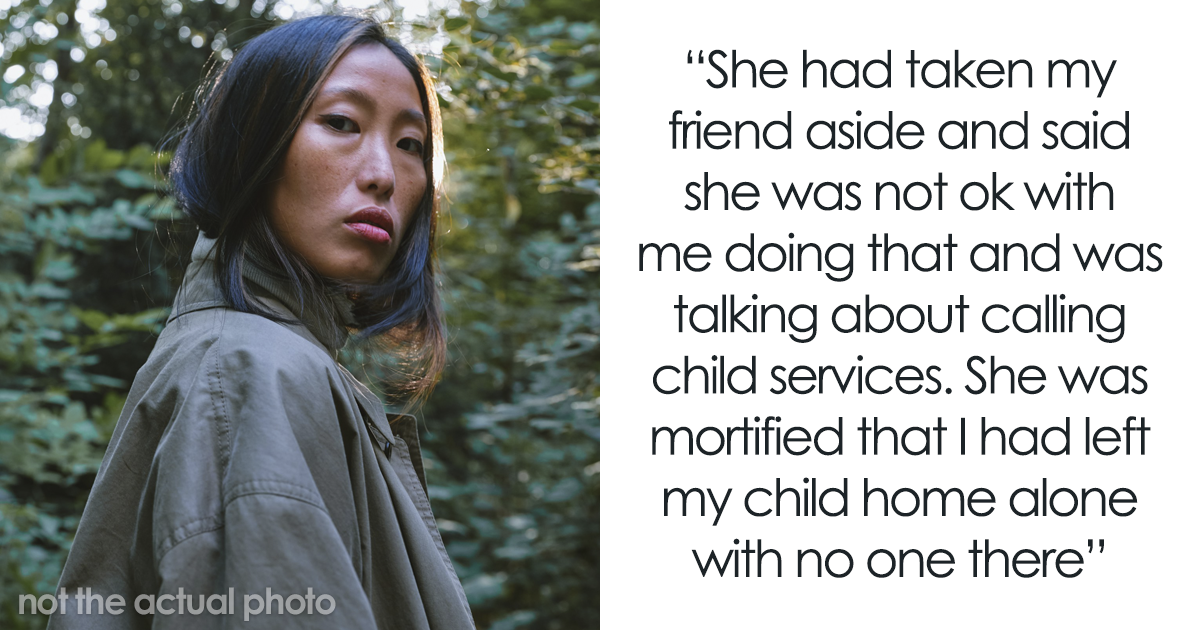Camping Incident Sparks Debate Over Leaving Children Home Alone

In the realm of parenting, the decision of when to leave a child home alone often rests with the parents. However, there are numerous instances where outsiders feel compelled to critique these decisions, sometimes leading to unsolicited advice or even unwarranted judgments. This scenario was recently highlighted by a woman who, while camping, overheard a parent discussing leaving her son alone and felt it necessary to intervene by threatening to call child protective services (CPS). To her astonishment, she later discovered that the child she had deemed ‘abandoned’ was actually an adult.
This incident has ignited a larger conversation about the societal perceptions surrounding parenting decisions, particularly when it comes to leaving children unsupervised. To delve deeper into this topic, we spoke with Sari Beth Goodman, M.A., a seasoned parent educator and coach at The Parental Edge, and Dennis Poncher, founder and director at Because I Love You Parent Support Groups. Both experts shared their insights on the matter.
In the United States, specific legal guidelines exist regarding the appropriate age at which children can be left home alone, varying significantly from one state to another. For instance, Illinois mandates that children be at least 14 years old, while Kansas has set the bar as low as 6. In states without strict regulations, parents often rely on general recommendations. Goodman notes, “When there are no specific laws, it’s commonly accepted that a child aged 12 and older is typically ready to stay home alone and can even supervise younger siblings.”
However, both experts stress that age is not the sole determinant of a child's readiness to be left at home alone. Maturity levels can vary greatly among children, which is why it’s essential for parents to assess a child's trustworthiness, independence, and street smarts. “Trustworthiness entails a child’s honesty, their adherence to family rules, and their ability to maintain friendships with dependable peers,” Goodman elaborates.
“Independence is also key,” Poncher adds. “Can the child prepare a simple meal, stay engaged in activities without resorting to screens, and understand safety protocols like using a fire extinguisher?” Furthermore, street smarts involve knowing not to open the door to strangers and safeguarding personal information, both online and offline.
Before allowing a child to stay home alone, the experts recommend establishing clear ground rules. Poncher suggests that parents set firm guidelines, one of which should be that no friends are permitted in the home unless a parent is present. He emphasizes the importance of consequences for rule-breaking as well.
Goodman further advises that the age at which a child can be left alone should correlate to how long the parents will be away and how far they are from home. She suggests starting with short periods of absence, gradually increasing the duration as the child demonstrates competence and understanding of safety rules. “Staying home alone is a skill that should be nurtured,” she explains.
Additionally, parents should consider the proximity of adult neighbors or relatives who could assist in case of emergencies, as well as the child's overall health, including any physical, emotional, or cognitive challenges.
When parents finally take the leap to leave their child alone, it’s wise to provide them with a contact number for emergencies and to establish a routine for check-ins. Goodman recommends planning these check-ins, potentially via text or call, at regular intervals such as every 30 minutes or hour. “This ensures that the child feels supported and trusted, rather than abandoned,” she adds.
As social media buzzes with reactions to the camping incident, many commenters have found humor in the stranger's hasty judgment while others have shared similar experiences of being misjudged as parents. This ongoing dialogue highlights the importance of understanding the nuances of parenting and the varying levels of maturity among children.











